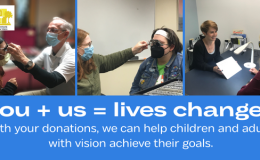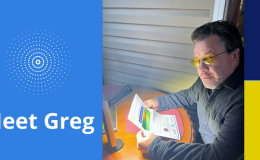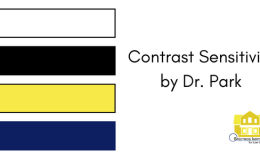As humans, sight is our dominant sense—the first choice for interacting with the environment. But it’s not our only means for interacting with our surroundings, and at Spectrios we know that our other senses can compensate well for a vision loss. Dr. Tracy Williams has been known to say that “we can get vision from our ears and our fingertips.”
Hearing
Some of the best ways hearing can substitute for vision often involves reading. Lifelong leisure readers can maintain that valued activity through listening to audiobooks, and a great audiobook can be just as immersive as a new paperback.
For newspaper readers, the radio or podcasts present excellent audio options for engaging in the daily news. For difficulty reading the mail, text to speech technology in the form of a smartphone application or a portable scanner/reader can help.
Touch
Pouring a glass of cold water into a clear glass presents a visually difficult task in preventing overflow. However, something as simple as placing the tip of your finger just inside the top of the glass allows an individual to use their sense of touch to determine when the glass is full. Just remember to only use this strategy with cold or room temperature liquids; hot coffee or tea require a different solution.
Or consider shaving, coarse beard hair can be felt to help in assessing whether a clean shave was achieved.
Filing fingernails is a safer alternative to clipping fingernails and relies primarily on touch to evaluate the shape and smoothness of the nail.
Smell
Our sense of smell can be used to identify spices in the kitchen or differentiate between shampoo and conditioner, given they have a different scent.
The possibilities are endless. How might you use your other senses to substitute for vision? If you need some help make an appointment with Katrina by calling 630-690-7115.






